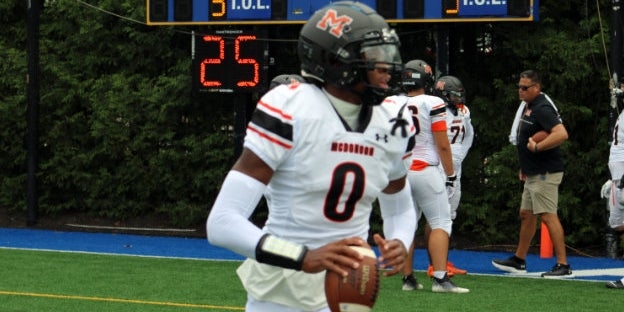

Published on: 04/21/2025
This news was posted by Oregon Today News
Description

Pope Francis, the first non-European head of the Roman Catholic Church in more than a millennium, died at age 88.
Cardinal Kevin Farrell, a top Vatican official, announced the death of Pope Francis from the Casa Santa Marta on Monday morning.
“Dearest brothers and sisters, with deep sorrow I must announce the death of our Holy Father Francis. At 7:35 this morning, the Bishop of Rome, Francis, returned to the house of the Father,” Farrell said in a statement.
“His entire life was dedicated to the service of the Lord and of His Church. He taught us to live the values of the Gospel with fidelity, courage, and universal love, especially in favor of the poorest and most marginalized. With immense gratitude for his example as a true disciple of the Lord Jesus, we commend the soul of Pope Francis to the infinite merciful love of the One and Triune God.”
Francis was one of the most popular popes in decades and a towering figure on the world stage, addressing not just Catholics but the men and women of our time.
The outspoken pope lent his voice to almost every modern issue facing the world, often taking the side of the marginalized and vulnerable. He spoke out against commercial exploitation of the environment, rich countries’ unwillingness to accept migrants, the alienation caused by technology and the lucrative sale of weapons of war.
He was unafraid to tussle with some of the most powerful figures in politics, famously calling President Trump’s plans to build a border wall "not Christian" in 2016, and correcting Vice President Vance on Christians’ obligations to care for immigrants in 2025.
For all of that, Francis was at times a controversial figure in his own church. Conservative critics charged him with bending church dogma as a concession to modern mores. Progressives, meanwhile, were disappointed that he did not go further to include LGBTQ Catholics and women in church leadership roles.
He had a common touch
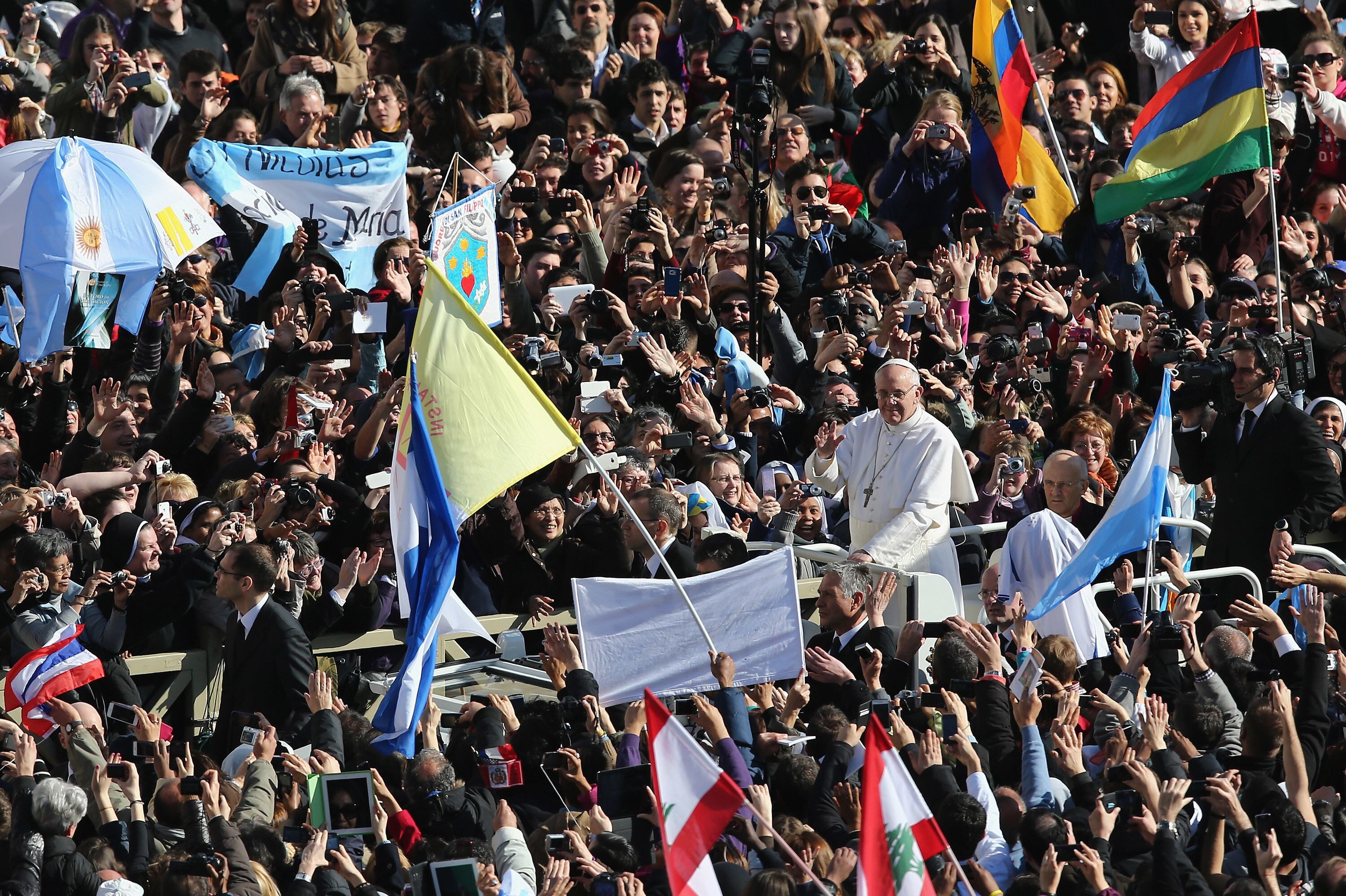
Jorge Mario Bergoglio was born in 1936 in Buenos Aires, Argentina, the son of Italian immigrants. He was proud of his Argentine heritage: He had a particular fondness for maté, the caffeine-rich infused drink, and tango.
On his 78th birthday, Francis welcomed hundreds of couples as they danced the tango in St. Peter’s Square. He clearly appreciated the gift — after all, before becoming a priest, he’d worked as a nightclub bouncer in Buenos Aires.
Pope Francis was beloved for his common touch, wading into crowds, kissing babies, disabled people and disfigured individuals. He was oblivious to his aides’ security fears, refusing to ride in a bulletproof popemobile.
He set many precedents: the first Jesuit pope, the first to take the name of St. Francis of Assisi and the first from the Global South.
Bergoglio was elected pope on March 13, 2013, following the surprise resignation of Pope Benedict XVI, who died in December 2022.
Pope Francis broke with tradition from the start, opting to live in a Vatican hotel rather than the opulent papal quarters.
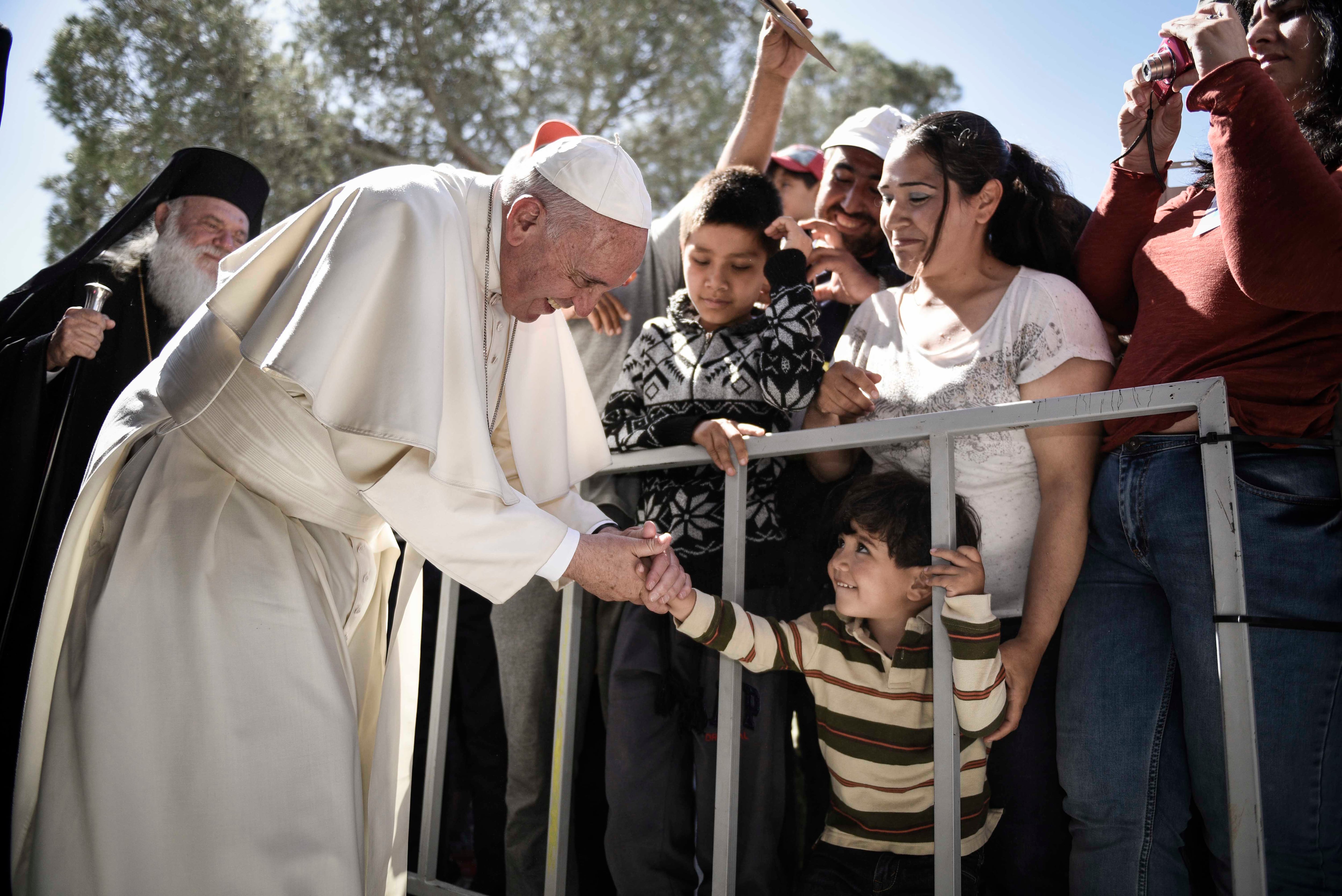
He made a powerful statement by rejecting the monarchical trappings of the papacy, according to journalist Nicole Winfield, who covers the Vatican for The Associated Press.
She summed it up this way: “I’m going to live with regular people. I am going to get up in the morning and go to the dining hall and have my breakfast. At dinnertime, I am going to line up with everyone else cafeteria style and get my dinner. I am going to microwave my dinner when it’s not warm enough. Yes, he nuked his own food.”
As archbishop of Buenos Aires, a megalopolis with huge gaps between rich and poor, he stayed close to his flock in the shantytowns.
Catholic Church historian and Villanova University theology professor Massimo Faggioli said that’s why the dispossessed on the peripheries of society became the focus of Francis’ papacy.
“Most popes before Francis had no occasions to meet with the outcasts, and that is something that got to real people even beyond the Catholic Church,” said Faggioli.
He broached same-sex couples and migrant rights
Pope Francis’ first papal trip was to Lampedusa — the southern Italian island that has been a gateway to Europe for hundreds of thousands of migrants fleeing war and poverty in Africa and the Middle East. There, he denounced the "globalization of indifference" toward migrants that “makes us all ‘unnamed,’ responsible, yet nameless and faceless.”
Weeks later, in his first airborne news conference, following his visit to Brazil, Francis uttered a phrase that would define his papacy: “If someone is gay and he searches for the Lord and has good will, who am I to judge?”
That seemed like the beginning of a shift.
In 1986, then-Cardinal Joseph Ratzinger — the Vatican’s enforcer of doctrine at the time, who went on to become Pope Benedict XVI — had declared in a document that the “inclination of the homosexual person” is “not a sin” but “an objective disorder” with a strong tendency toward “intrinsic moral evil.”
Bergoglio himself had said in 2010 that Argentina’s same-sex marriage legislation was “an attempt to destroy God’s plan.”
But as pope, he was hailed by LGBTQ rights groups for calling for laws to protect same-sex couples.
Still, the Vatican sent mixed signals during his tenure. In June 2021, it filed a formal diplomatic protest with the Italian government over a draft law that would criminalize violence and hate speech against LGBTQ people and disabled people, as well as misogyny. The Vatican feared the legislation could make the church vulnerable to prosecution for not conducting same-sex marriages, for opposing adoption by same-sex couples and for refusing to teach gender theory in Catholic schools.
And while Francis repeatedly condemned discrimination and violence against gay people, he decried as “ideological colonization” the theory that gender is largely a social construct rather than determined solely by a person’s biological sex.
The pope also apologized for using a derogatory term referring to gay men during a closed-door discussion among bishops in 2024.
He wanted it to be a church for today’s world
A few months into his first year as pope, in November 2013, Pope Francis made his debut as a papal writer with The Joy of the Gospel. It was quickly dubbed his "I Have a Dream" document:
“I dream of a ‘missionary option’, that is, a missionary impulse capable of transforming everything, so that the Church’s customs, ways of doing things, times and schedules, language and structures can be suitably channeled for the evangelization of today’s world rather than for her self-preservation.”
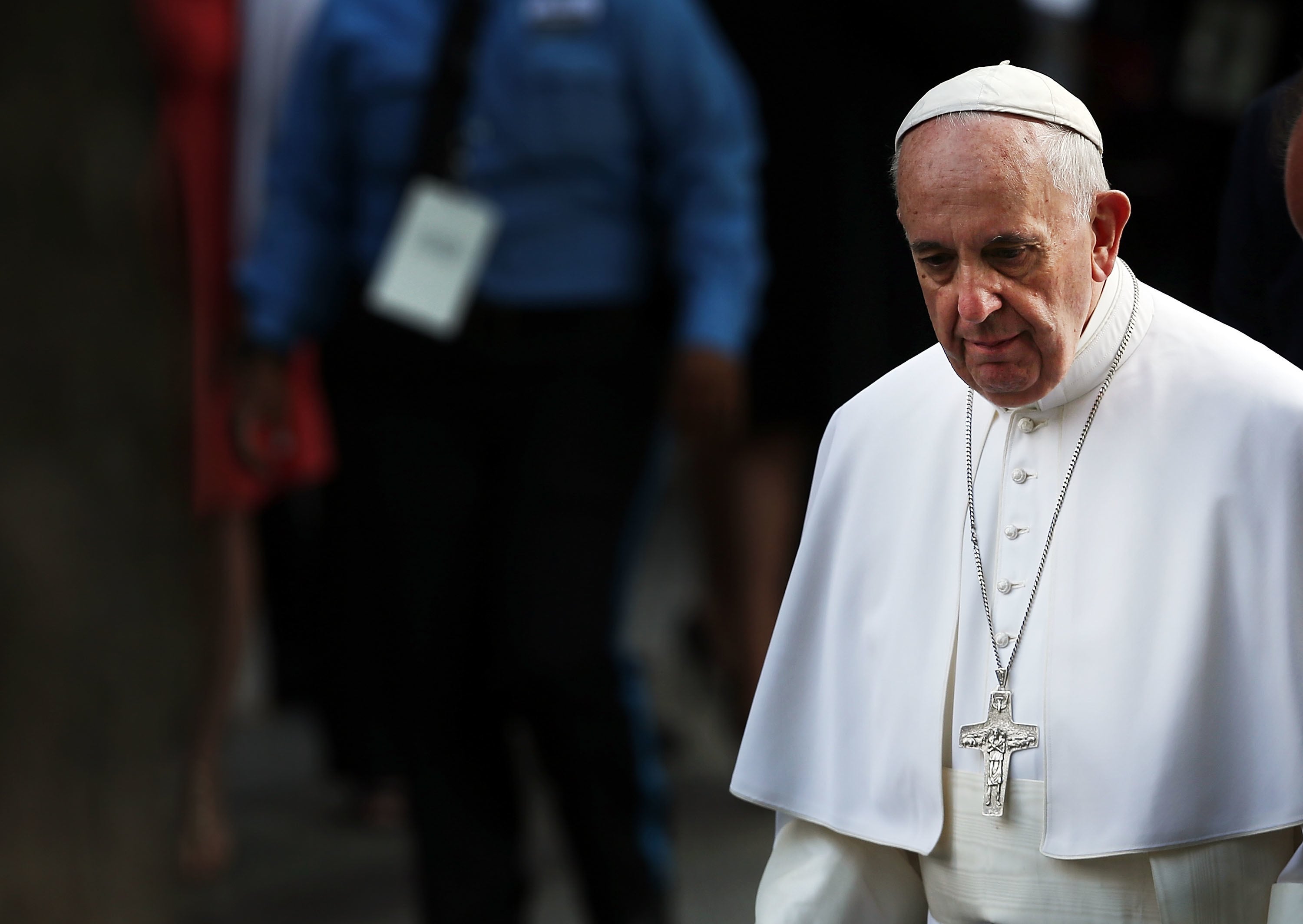
And after two papacies focused on the primacy of church doctrine, in 2015 Francis convened a yearlong jubilee on the primacy of mercy. “No one can be excluded from the mercy of God. The Church is the house where everyone is welcomed and no one is rejected,” Francis said in a statement.
In the 2016 document called The Joy of Love, Francis called for a more compassionate church toward “imperfect” Catholics, saying no one can be condemned forever.
Winfield, the AP reporter, said the document took away the black-and-white nature of doctrine on sex “and made it more of a personal decision.” It means a person “working out these issues almost directly with God,” Winfield explains, “to come to a decision about what was best for his or her family.”
In a long interview with priest Antonio Spadaro, who was editor-in-chief of the Jesuit journal La Civiltà Cattolica, Francis outlined his vision of the Catholic Church as a “field hospital after battle, healing the wounds of the faithful and going out to find those who have been hurt, excluded or fallen away.”
Spadaro told NPR that this wasn’t just a nice image. “The church is not sometimes a field hospital. The church is a field hospital, to save the people, not just to cure some little problems, the complete openness of the church toward the world."
That openness shook things up.
He allowed the church’s World War II files to be researched and corruption to be prosecuted
After the Vatican resisted requests from historians and Jewish groups for decades, Pope Francis announced he would allow scholars access to the archives of Pope Pius XII, the controversial World War II pontiff who remained publicly silent while some 6 million Jews were killed in the Holocaust.
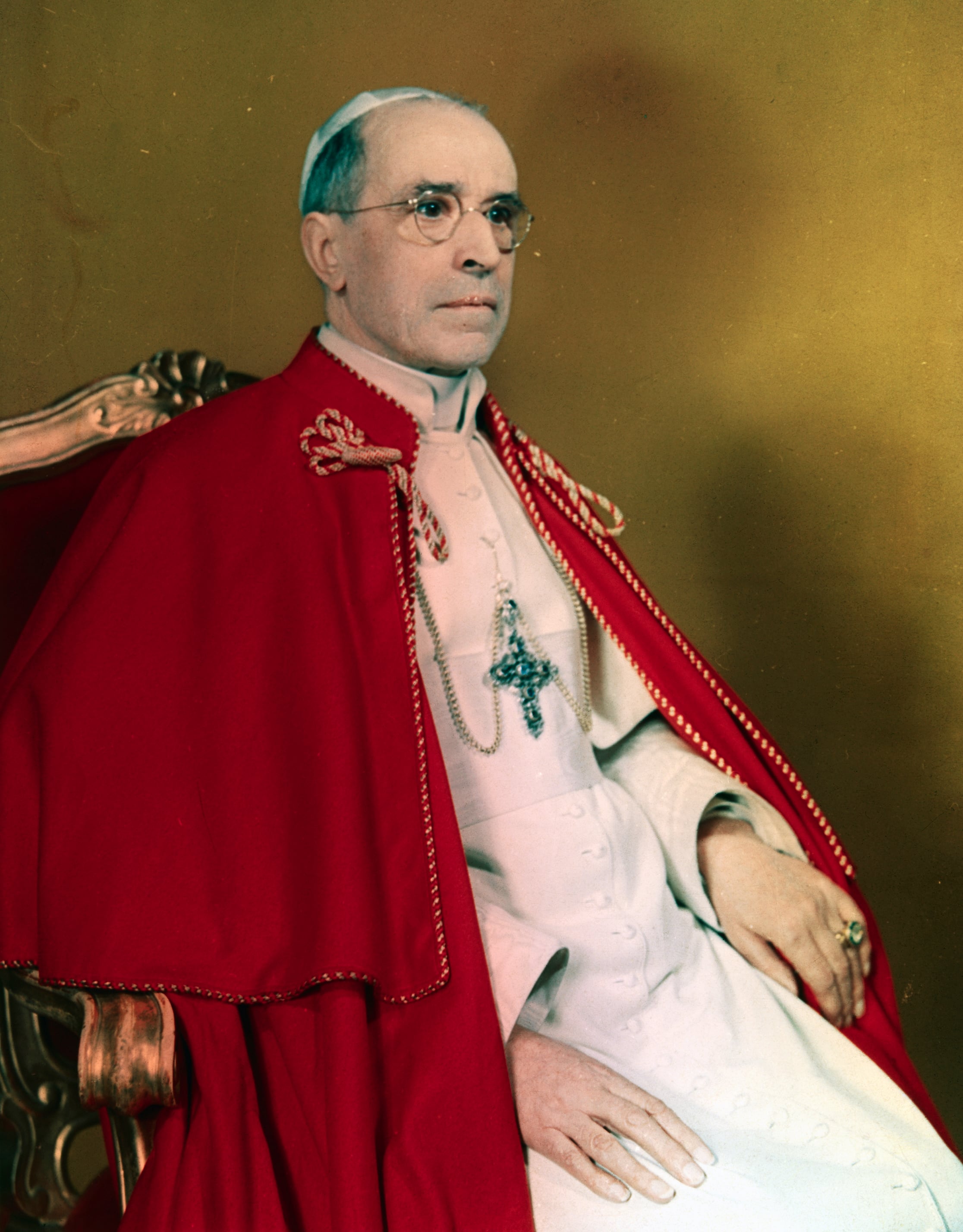
Following the mandate given to him by his cardinal electors, Francis took action to clean up the Vatican’s finances, long tainted by corruption. In 2021, he went so far as to approve the indictment for money laundering, fraud and abuse of office of 10 people, including a cardinal — unprecedented in modern history.
Francis created a kitchen cabinet of nine cardinals to help reform a dysfunctional bureaucracy. He appointed clerical-sex-abuse survivors to a new commission on protection of minors. And he acknowledged that the sexual abuse of nuns by priests and bishops is a long-standing problem and still happens.
Nevertheless, his papacy was buffeted by worldwide revelations of allegations of decades of clerical sex abuse of minors and cover-ups by priests’ superiors. After exhibiting what some Vatican observers deemed a blind spot toward sex abuse, in 2018, on the eve of his trip to Ireland — which had been rocked by devastating abuse scandals — Francis issued an unprecedented letter seeking the help of the faithful to root out “this culture of death” and vowing to prevent further cover-ups of what he specifically labeled “crimes.”
And in 2019, Francis convened an extraordinary sex abuse summit at the Vatican.
He had mixed success on progress for women
Bergoglio’s election had sparked great hope among Catholic women — lay and nuns — that he would promote a greater role for women in the church. The result was more or less two steps forward, one backward. In the early years of his papacy, Francis made some cringeworthy comments: When he appointed several women to a blue-ribbon theological commission, he called female theologians “strawberries on the cake”; addressing the European Parliament, lamenting Europe’s low birthrate, he compared Europe to a grandmother who is “no longer fertile and vibrant.”
At the same time, Francis promoted the advancement of women in the church far more than his predecessors did — appointing numerous women to high-level posts in Vatican departments — and he called for greater women’s participation in church decision-making.
Francis also created a commission to study the possibility that women could become deacons — meaning they could perform some of the duties of priests. But on the issue of women priests, Francis, like his predecessors, was firmly opposed — a position that infuriated many Catholic women.
Bergoglio sought liberation sans Marx
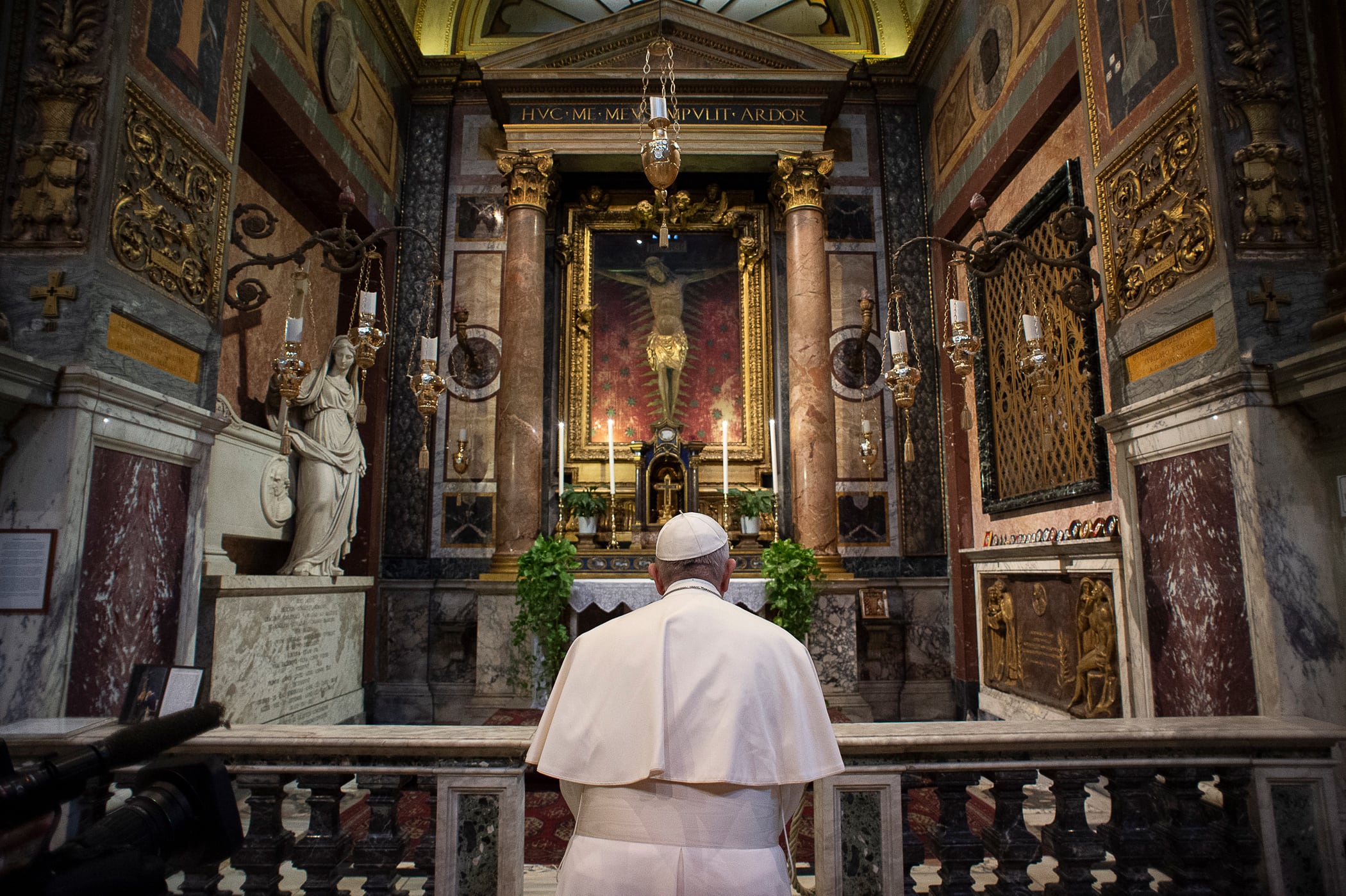
In the 1970s, Bergoglio lived through the repression of Argentina’s military junta. The local church was polarized — many Argentine Jesuits took up arms under the banner of liberation theology, a movement that sought to engage the Catholic Church in social and political change. Critics said it amounted to Marxist class struggle.
Elisabetta Piqué is the Rome correspondent for Argentine daily La Nación and a biographer of Bergoglio, whom she knew well. Piqué said he firmly rejected the leftist ideology behind liberation theology and focused on a Latin American grassroots religiosity.
“He followed the teología del pueblo, the theology of the people. That was a kind of readaptation of the theology of liberation but without its Marxist ideology," added Piqué.
Traditionalists got rankled
But Pope Francis was not afraid to criticize Western societies.
In the sweeping encyclical Laudato Si (Praise Be to You) on the environment, he blamed humans for having turned the Earth into what he called an “immense pile of filth.”
In one of his most blistering speeches against laissez-faire capitalism, while visiting Bolivia, he said that behind the harm being done to the environment is what he called the "dung of the devil" — the unfettered pursuit of money.
“Once capital becomes an idol and guides people’s decisions, once greed for money presides over the entire socioeconomic system,” Francis said, “it ruins society, it sets people against one another, it even puts at risk our common home — our sister, Mother Earth.”
Francis’ outspokenness on issues like the environment and capitalism, as well as his predilection for mercy over strict doctrinal observance and for inclusion over punishment, met with vehement opposition from conservatives within and outside the Catholic Church. Traditionalist Catholics were incensed in particular by Francis’ easing of the ban on Communion for divorced people and by the possibility that married men of proven virtue could be ordained as priests to offset a clergy shortage.
His critics’ anger drew broad public attention in August 2018 with the publication of a bombshell letter by the Vatican’s former ambassador to the United States, Archbishop Carlo Maria Viganò. Filled with vitriol and innuendo, it read like an ideological screed, a homophobic manifesto, decrying what it claimed was Francis’ gay-friendly agenda.
Viganò soon became the darling of Francis’ most vocal critics — conservative American Catholics, who attacked the pope in tweets, blogs and conservative media.
Several of those critics are members of the U.S. Conference of Catholic Bishops who also strongly opposed former President Joe Biden, who is Catholic. The Argentine-born pope and Biden both staked out liberal stances on issues like climate change and economic disparity and took different positions from their predecessors in the “culture wars.” The Vatican went so far as to send a warning to U.S. bishops about a potential proposal to deny Communion to Catholic elected officials who support legislation allowing abortion rights.
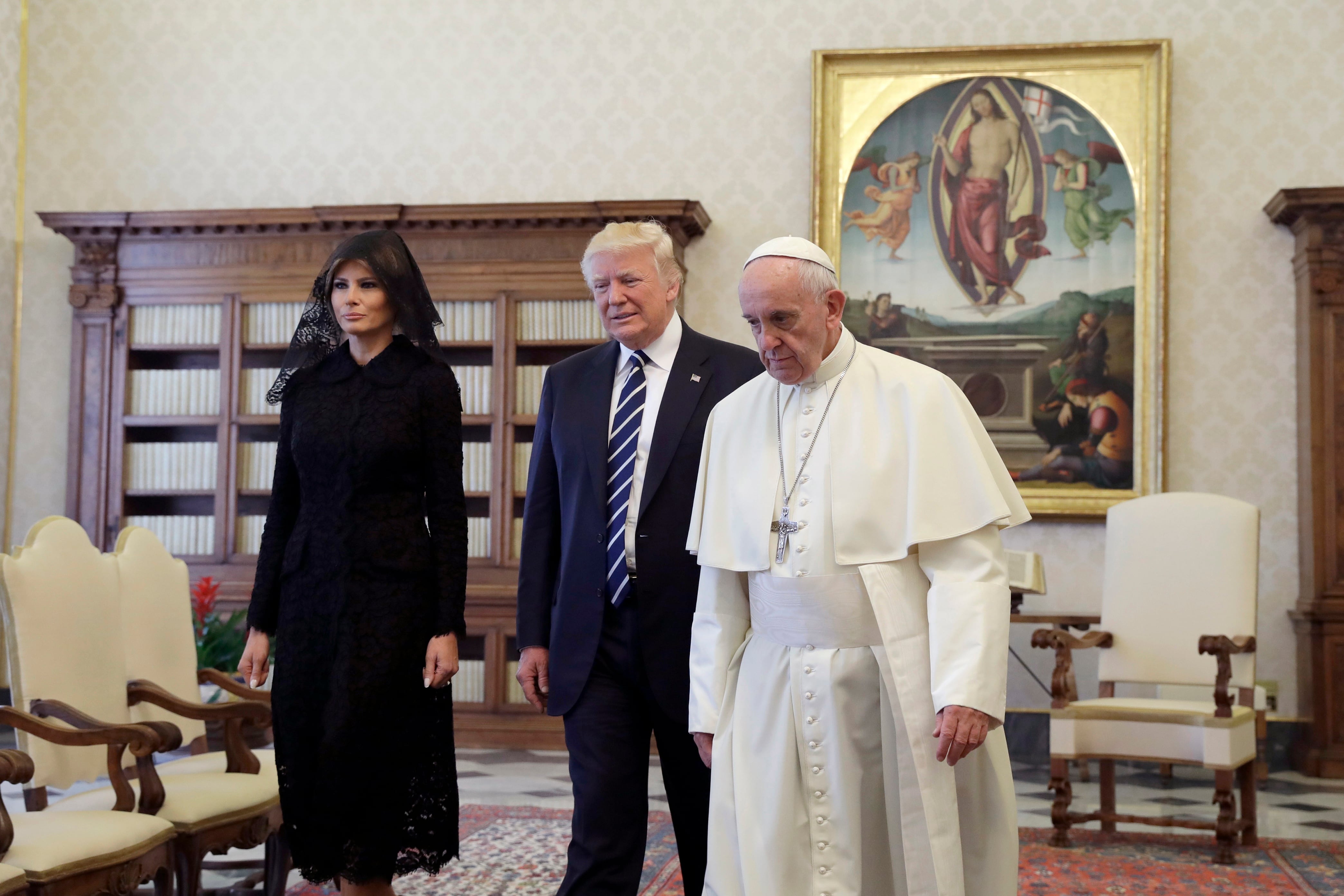
Relations between Francis and President Trump were at best chilly. The pope made repeated rebukes of Trump’s approach to immigration, criticizing the border policies that separated parents and their children during Trump’s first term.
And in a letter to U.S. bishops in February, the pope sharply criticized the administration’s mass deportation plan as a "major crisis." He also responded directly to remarks Vice President Vance made in an interview. Vance, who converted to Catholicism in 2019, cited the theological concept known as "ordo amoris" — the order of love — in claiming, “you love your family and then you love your neighbor and then you love your community and then you love your fellow citizens and your own country, and then after that you can focus and prioritize the rest of the world.”
Francis rejected Vance’s interpretation, telling U.S. bishops, “Christian love is not a concentric expansion of interests that little by little extend to other persons and groups. ... The true ordo amoris that must be promoted is that which we discover by meditating constantly on the parable of the ‘Good Samaritan’ (cf.Lk10:25-37), that is, by meditating on the love that builds a fraternity open to all, without exception."
And Francis repeatedly railed against the conflicts in Ukraine and Gaza, urging negotiations to end the fighting. In November 2024, he voiced his frustration to diplomats at the Vatican, saying, “I simply mention two failures of humanity today: Ukraine and Palestine, where there is suffering, where the arrogance of the invader prevails over dialogue.”
COVID-19 pandemic
Pope Francis was among the first world leaders to speak out about the coronavirus as he tried to ease people’s anxieties about the mysterious new infection.
In March 2020, with Italy ground zero of the coronavirus pandemic in Europe and with a spiraling death toll, Francis presided over an extraordinary ritual: Against the dramatic backdrop of an empty St. Peter’s Square, glistening in the rain, the pope prayed for an end to the pandemic. “We find ourselves afraid and lost,” Francis said. “We were caught off guard by an unexpected, turbulent storm. We have realized that we are on the same boat, all of us fragile and disoriented ... all of us called to row together, each of us in need of comforting the other.”
And as soon as vaccines were available, Francis urged everyone who could to get the shots. He said he was perplexed by vaccine hesitancy, acknowledging the presence of some "vaccine negationists" among the College of Cardinals.
Reaching for the world’s periphery and other faiths
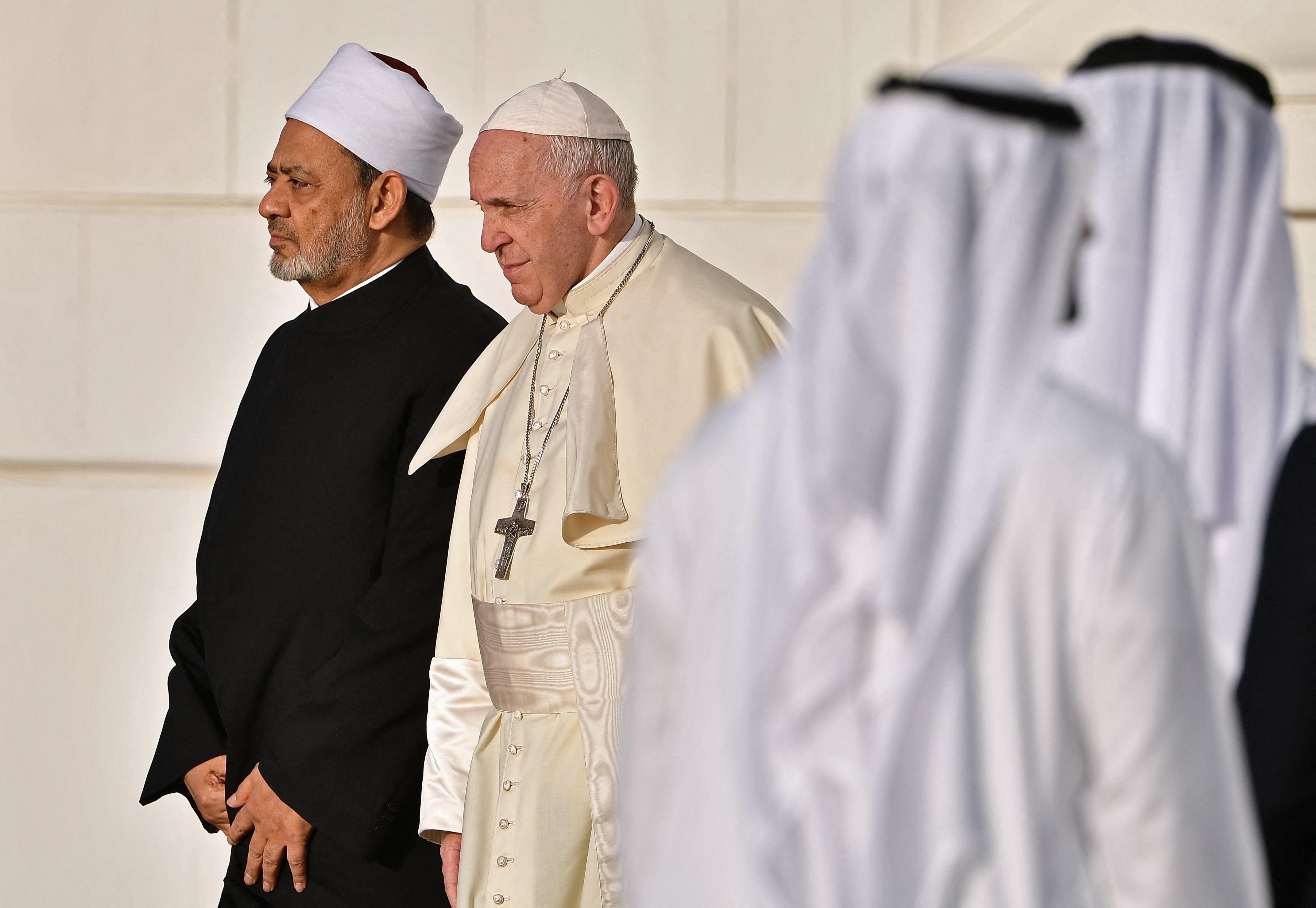
Before becoming pope, Bergoglio had traveled very little.
As Pope Francis, he became a global player, preferring to visit what he called the “periphery” of the world in Asia, Africa and Latin America. His travels included visits to Myanmar, Bangladesh, Japan, the Central African Republic, Mozambique, Uganda, Madagascar, Israel, Egypt, Iraq, Ecuador, Chile and Cuba, among other countries.
He helped restore relations between the U.S. and Cuba during the Obama administration.
And his watchwords were “encounter,” “dialogue,” “reconciliation” and “build bridges, not walls.”
Interfaith dialogue was one of the pillars of his papacy — he forged closer ties with the Orthodox Church, Protestants and Muslims, and he continued the Vatican’s good relations with Jews set forth by St. John Paul II.
And Francis had no qualms about delivering overtly political messages.
Accepting a prestigious European prize in 2016, he sharply scolded the European Union for its treatment of migrants and fraying sense of unity.
“I dream of a Europe where being a migrant is not a crime. ... I dream of a Europe that promotes and protects the rights of everyone,” he said.
Church historian Faggioli said the world was fascinated by how Francis transformed the epitome of conservatism.
“The leader of a very conservative institution who tries to change it radically from the top — that is a revolutionary,” he said.
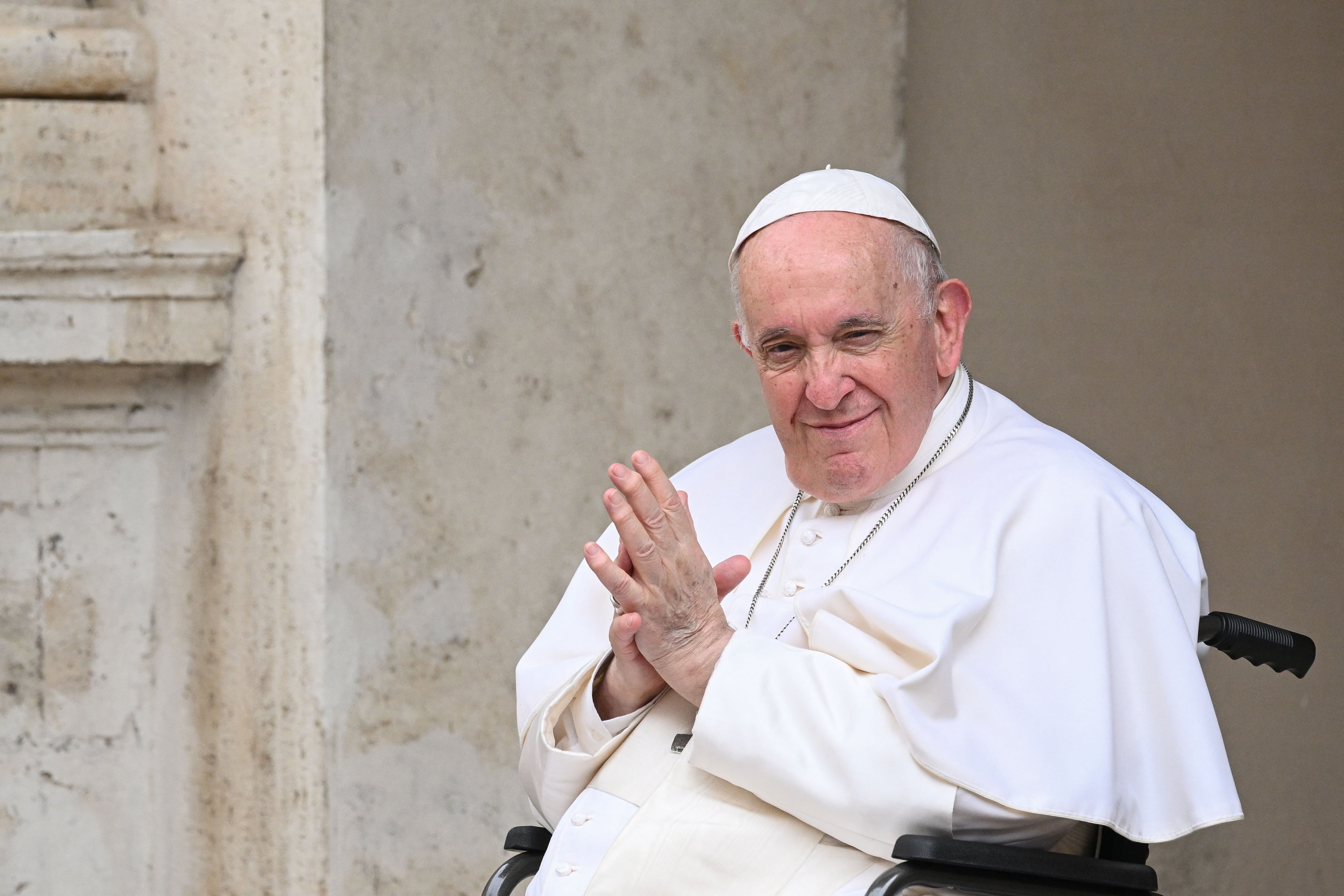
A master at blending the spiritual and the political, Pope Francis emerged as a daring, independent broker on the global stage.
His papacy reenergized the Catholic Church and brought it into the 21st century, making it inclusive and welcoming.
News Source : https://www.opb.org/article/2025/04/21/pope-francis/
Other Related News
04/21/2025
The NFL draft is the culmination of a lifelong dream for many college players whove envisi...
04/21/2025
If youre looking to get into the spring spirit by hanging out with some baby animals the O...
04/21/2025
Oregon Tech healthcare students Students in Oregon Techs health-related programs Klamath F...
04/21/2025
Nick Abrams II a four-star linebacker from Maryland goes in-depth on his visit to Oregon
04/21/2025






